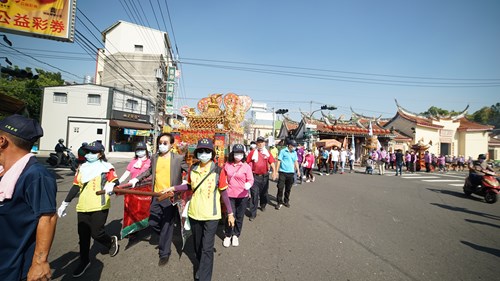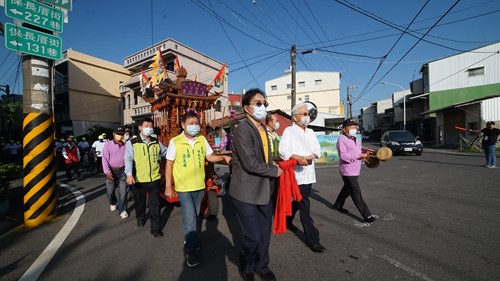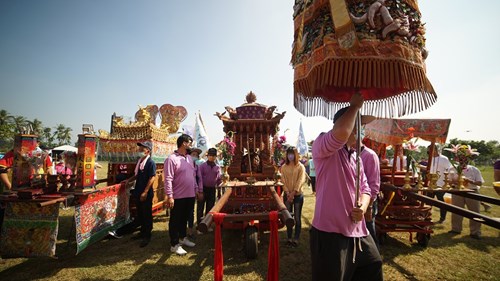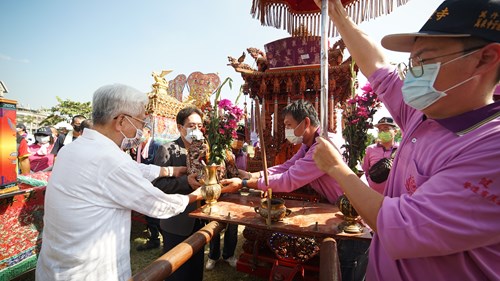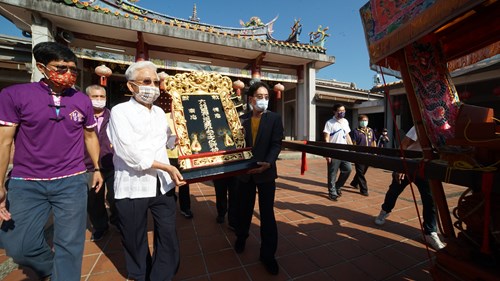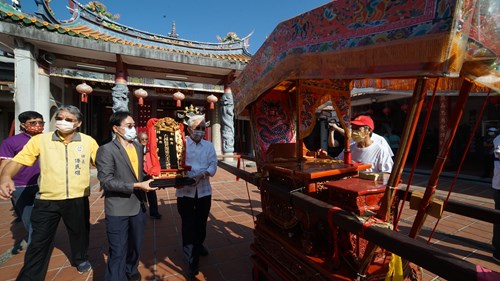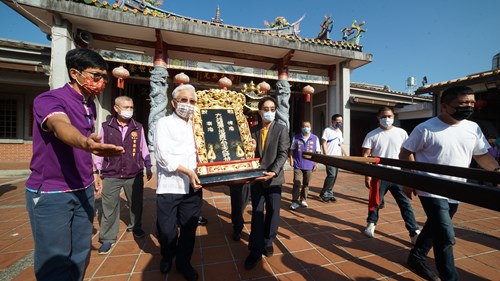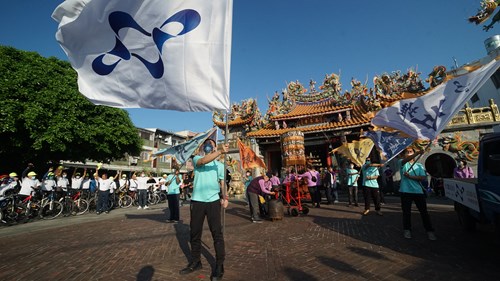
Activity Outcome
HAC hosts ceremony highlighting Hakka’s collective memories, history
- Source:客家文化發展中心
- Publication Date:2021/11/22
- Last updated:2022/11/16
- Count Views:2443
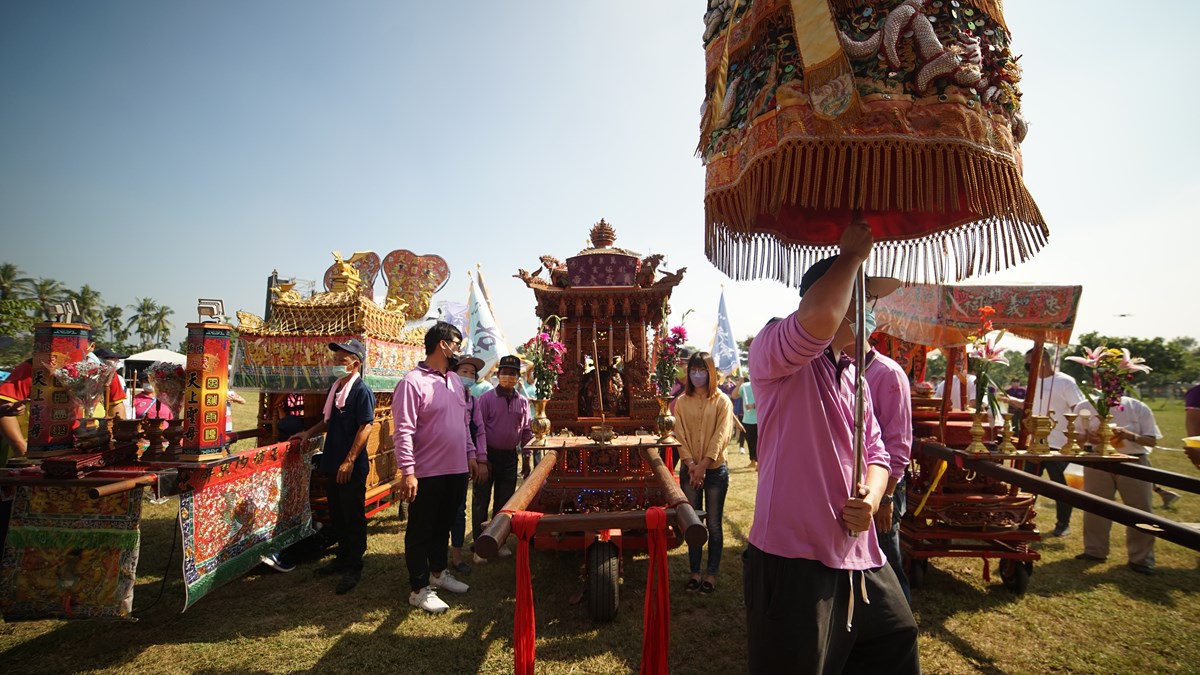
The Hakka Affairs Council (HAC) held a cultural ritual connecting three temples known as the “three sacred sites” in Pingtung County to commemorate Hakka historical events on Nov. 19.
The sacred sites include Wanquan Temple in Wandan Township, Liugdui Zhongyi Temple in Zhutian Township, and Liugdui Mazu Temple in Neipu Township, which serve as a belief center for strengthening faith and spiritual fortitude of the Liugdui Hakka settlements.
HAC Deputy Minister Chung Kung-chao (鍾孔炤), along with temple priests, administrators, and local representatives, worshipped gods and deities at the Hakka event through a ritual, and gathered residents of the three townships to celebrate the event at the three sacred sites.
The name “Liugdui” originates from the “seven teams” organized by Zhu Yi-gui (朱一貴), a leader of Taiwanese uprising against the Qing court during its rule in 1721. As Wanquan Temple was where the riot started, the place is viewed as the origin of Liugdiu settlements, which cover 12 rural areas across Kaohsiung and Pingtung.
During that era, Chancellor Zhong Lin-jiang (鍾麟江) of Liugdui initiated to build the Zhongyi Temple to fill people of the Hakka settlements with positive energy, and served as an important venue for the meeting and assembly of the “Righteous People” – those who defended homes.
Today, Zhongyi Temple worships the ancestors who sacrificed their lives to protect their hometown and has become the spiritual center of the Hakka people.
300 years ago, the ancestors of Liugdui started uprising in three temples to defend their homeland. The historical event makes the three temples iconic, for they are not only the local religious center, but important assets with cultural significance and value, said Deputy Minister Chung.
The event not only connected the three sacred sites, but showcased the heritage and future of Liugdui settlements, presenting the common good of the community.

